A Hit in the Ear: The Sound of Fight Club
The latest updates, reviews and unmissable series to watch and more!
You are now subscribed
Your newsletter sign-up was successful
Want to add more newsletters?

ONCE A WEEK
What to Watch
Get all the latest TV news and movie reviews, streaming recommendations and exclusive interviews sent directly to your inbox each week in a newsletter put together by our experts just for you.

ONCE A WEEK
What to Watch Soapbox
Sign up to our new soap newsletter to get all the latest news, spoilers and gossip from the biggest US soaps sent straight to your inbox… so you never miss a moment of the drama!
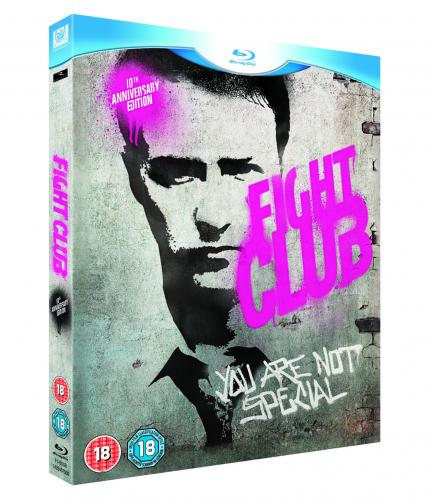
Fight Club is now a decade old, but David Fincher’s darkly comic satire still packs a fierce punch, especially on the new 10th anniversary Blu-ray edition.
The new disc bulges with extras, including a raft of commentary tracks from its creators, notably stars Brad Pitt, Edward Norton and Helena Bonham Carter, novelist Chuck Palahniuk (on whose book the film is based), screenwriter Jim Uhls, and, of course, Fincher himself, who re-lives the irony of making an anti-corporate satire for a major Hollywood studio.
A flop on its initial release, Fight Club is now an established cult classic, its rules firmly embedded in pop culture ("The first rule of Fight Club is: you do not talk about Fight Club"), but for those encountering the film for the first time, here's a quick guide to its leading trio and a brief plot recap.
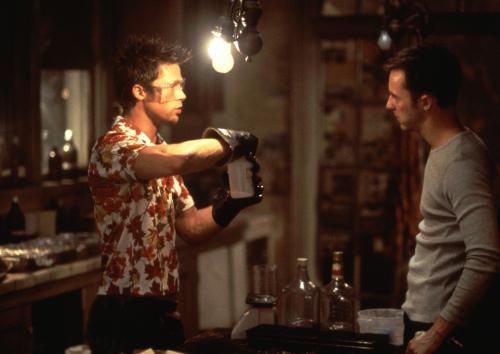
Played by Norton, the film's narrator (let's call him Jack) is a white-collar, insomniac drudge who haunts support groups for the terminally ill; Bonham Carter is fellow help-group tourist Marla, a nihilist Goth with wonky eye-liner who gets under Jack's skin; and Pitt is the charismatic Tyler Durden, who offers Jack a release from his alienated life by introducing him to the joys of bare-knuckle fighting.
The underground club the pair create for similarly disaffected men evolves into the subversive Project Mayhem, an anarchist movement committed to ever escalating acts of terrorism against symbols of modern materialism. In Fincher's hands, all this adds up to a savagely funny film that shocks, provokes and sucker punches the viewer. You either love it or hate it.
Ten years on, Fight Club looks fabulous on Blu-ray (Fincher oversaw the film's frame-by-frame remastering), as I discovered when I saw the movie screened in the format in a preview theatre on the Fox Studios lot in LA recently. It sounds fabulous too, which has a lot to do with the film’s Oscar-nominated sound designer, Ren Klyce, who gave some ear-opening insights into his craft following the screening.
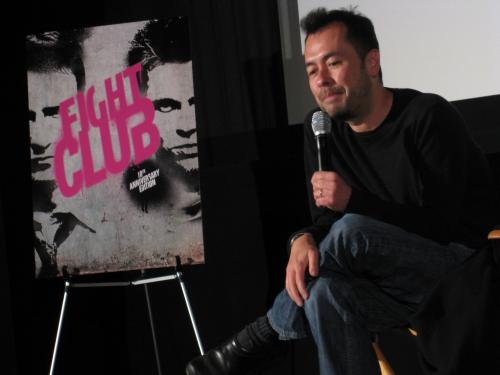
After enthusing about the delights of Monday-night Blu-ray showings in George Lucas’s screening room (“the other night we watched Dr Strangelove and you’re sitting there and going Wow!”), Klyce revealed a few of his trade secrets, including the formula he hit upon for achieving the distinctive sound of Fight Club’s fights.
The latest updates, reviews and unmissable series to watch and more!
When Hollywood filmmakers want to put across the sound of a fight, they usually take the easy option and reach for the SFX disc on the shelf – which is why most fights in Hollywood films all sound the same. Klyce, who has worked with Fincher since 1983 and earned a second Oscar nomination for The Curious Case of Benjamin Button, didn’t take the easy option.
“We ended up recording all sorts of different sounds,” he reveals, “from punching our own bodies, to taking a chicken carcase, stuffing it with walnuts and hitting that – we used the walnuts because they’re like little brains. And then we took slabs of meat from the butcher’s shop into the basement of George Lucas’s studio and smacked them around. And then we layered all those noises. And that’s what you’re hearing.”
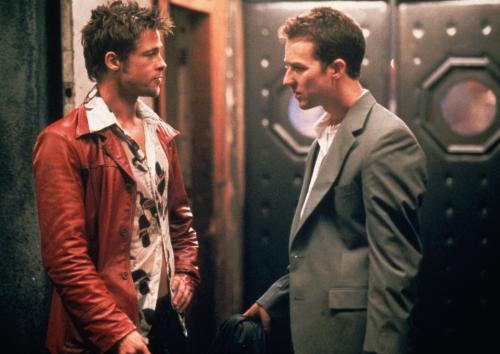
When it came to the film’s most shocking fight, however, the one in which Norton’s protagonist beats Jared Leto’s character, Angel Face, to a pulp, Klyce took a more expressionistic approach.
“I had a big fight about that scene with Jim Haygood, our picture editor (who I love), because he had edited it to a piece of music. It was great but the music made it fun and kind of playful and sexy, almost like dancing.
"He’s beating up Angel Face and there’s Tchk – T-t-t-tchk Dum tchk tchk tchk-er. It almost made it erotic, which took away its message, which is Norton’s anger."
Getting rid of the music created a space for Norton’s Jack, and his sour voice-over rant:
I felt like putting a bullet between the eyes of every Panda that wouldn't screw to save its species. I wanted to open the dump valves on oil tankers and smother all the French beaches I'd never see. I wanted to breathe smoke.
“Without the music the scene opened up. You can now hear Jack’s voice. But there’s nothing supporting it. The punches are just like slap slap. So I thought let’s take the sounds of them yelling and slow them down and speed them up. When you see the footage, Fincher’s cranking it, he’s running it at 60 frames per second and it’s slow motion, and then they come back up to speed and so the sound does the same thing. You take the sound down in layers, deconstruct it and find the beats that work.”
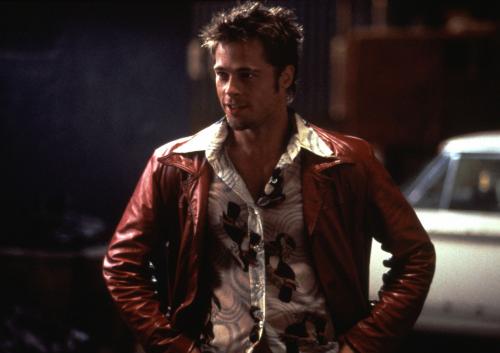
Klyce took this expressionism even further in his favourite scene in the movie, in which Pitt’s Tyler Durden unfolds his vision of the future, the famous Kudzu Vine speech:
In the world I see - you are stalking elk through the damp canyon forests around the ruins of Rockefeller Center. You'll wear leather clothes that will last you the rest of your life. You'll climb the wrist-thick kudzu vines that wrap the Sears Tower. And when you look down, you'll see tiny figures pounding corn, laying strips of venison on the empty car pool lane of some abandoned superhighway.
“It’s so beautiful. Originally, we just had the sound of the rain playing and it was great. When you’re mixing a film there’s a lot of pressure to get things done so that the producers don’t get mad that you’re not done. OK, so we’ll put some rain in there and we’ll get to the next scene. But I kept watching it and I said: ‘This is really an opportunity to put in something that will underscore Chuck Palahniuk’s writing.’”
This Klyce achieved with an audio collage of “things way in the background with a lot of reverb that you can’t necessarily pinpoint”, an eerie mix which leaves the impression of animals let loose from a zoo in a post-industrial world.
An interactive feature on the new Blu-ray disc allows you to play around with the mix of this scene, plus three others including Angel Face’s Beating. You can fade a scene’s naturalistic sounds, amplify the expressionistic ones, and tinker with all manner of shades in between. The feature offers a glimpse of some of the subtleties of the film’s sound design, its overtones and undertones, its psychological nuances. I suspect, though, that the majority of users will have most fun with the punches.
Fight Club 10th Anniversary Edition is released on Blu-ray on 23 November from Twentieth Century Fox Home Entertainment
A film critic for over 25 years, Jason admits the job can occasionally be glamorous – sitting on a film festival jury in Portugal; hanging out with Baz Luhrmann at the Chateau Marmont; chatting with Sigourney Weaver about The Archers – but he mostly spends his time in darkened rooms watching films. He’s also written theatre and opera reviews, two guide books on Rome, and competed in a race for Yachting World, whose great wheeze it was to send a seasick film critic to write about his time on the ocean waves. But Jason is happiest on dry land with a classic screwball comedy or Hitchcock thriller.


